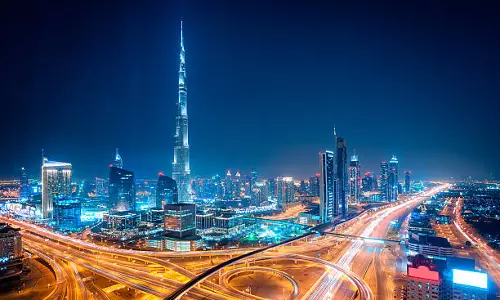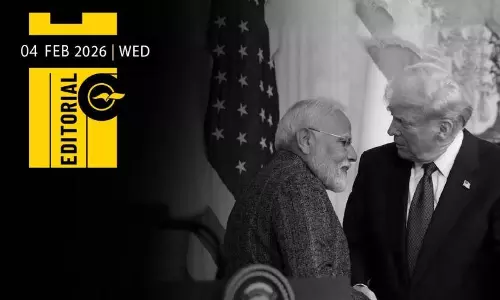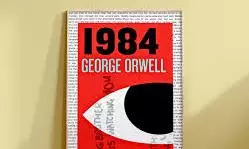
The totalitarian blueprint: four ways Orwell’s 1984 predicted future
text_fieldsSome novels eerily anticipate real-world events and political shifts long before they unfold.
Their authors had sharp observation skills and an uncanny ability to read the undercurrents of their time.
George Orwell was one of those prophetic souls.
The self-described democratic socialist British author closely followed the policies and developments of Stalinist Russia. He consistently critiqued Joseph Stalin's rule as a betrayal of true socialism.
In 1984, he wrote about a dystopian totalitarian regime ruled by the Party and its leader, Big Brother.
His protagonist is a low-ranking member of the Party - Winston Smith, who secretly despises the oppressive regime. The Party controls every aspect of life, including thought, history, and even language, through constant surveillance and propaganda.
He dreams of rebellion and starts working with a kindred spirit - Julia. He also falls in love with her, which is forbidden by the Party because the only purpose of marriage is to produce children for the regime. They are caught by the Thought Police and brainwashed into absolute loyalty to the omnipresent Big Brother.
While some see 1984 only as a critique of Stalin’s Russia, its themes have echoed in totalitarian regimes across the world for decades.
Every time a group wants to control a population, it follows the same playbook - surveillance, manipulation, erosion of truth, censorship, and fear tactics.
1984 does not predict a single future event; it outlines a pattern that repeats throughout history.
Mass surveillance
The concept of Big Brother watching everyone has parallels with modern-day surveillance technologies, such as CCTV cameras, data tracking, and government monitoring of online activity.
In 2013, whistleblower Edward Snowden revealed that the U.S. National Security Agency (NSA) had been collecting massive amounts of data on citizens worldwide. The PRISM program allowed the NSA to access private communications from tech giants like Google, Facebook, and Apple without users knowing.
China has a social credit system that uses AI-powered facial recognition, online tracking, and surveillance cameras to monitor its citizens’ behavior. People receive scores based on their actions - good behavior (like paying debts) improves scores, while bad behavior (like criticising the government) lowers them. This also mirrors Orwell's concept of Thought Crime, which punishes people for even thinking against the Party.
Manipulation of history
The Party constantly rewrites history, just as misinformation, propaganda, and media control are used today to shape public perception.
The Chinese government strictly controls information about the Tiananmen Square massacre, where pro-democracy protesters were violently suppressed. In China, textbooks and media either downplay or completely erase the event.
The US government's narrative of the Iraq War keeps changing. The attack was initially justified by claims of Saddam Hussein hiding weapons of mass destruction. After the war, the narrative shifted to the goal of spreading democracy.
The British school curricula are notorious for glossing over or omitting the brutal actions of the British Empire, such as the Bengal Famine, which killed millions. The Mau Mau Uprising in Kenya was either ignored or minimised in official British narratives when the Empire's forces tortured and killed up to 90,000 people.
American schools teaching a sanitised version of Christopher Columbus and the genocide of native Americans is another stark example.
The French have a super selective memory when it comes to the Algerian War, which involved torture, executions, and mass violence against Algerian independence fighters. The French government has described its war crimes as a peacekeeping mission for decades.
Thought control and censorship
Social and political discourse today often involves censorship, cancel culture, and ideological policing. The idea of thoughtcrime - punishment for merely thinking against the regime - resonates with debates about freedom of speech.
All tech giants ban or demonetise certain topics. But, more than that, they use algorithms to shape ideologies and suppress alternative viewpoints.
Whistleblowers never live well, and the facts they show the world never make big changes. Their words disappear into thin air. Just like the Thought Police in 1984, people who reveal inconvenient truths are punished.
Historically, academics and journalists have been de-platformed for opinions that go against dominant ideologies. Russia has been criminalising journalists who called the Ukraine invasion a "war" for contradicting the state narrative.
Perpetual war and fear tactics
In 1984, George Orwell depicts a world where the ruling Party keeps its citizens in a constant state of fear by maintaining an endless war against shifting enemies. This war is not necessarily meant to be won but serves as a tool to justify extreme government control, surveillance, and suppression of individual freedoms. Julia even says there is no real war, but it is the government bombing its own country.
Orwell suggests that by keeping people focused on an external enemy, the government can manipulate emotions, demand obedience, and suppress dissent.
Many critics argue that modern governments use similar strategies to maintain control, particularly by focusing on terrorism.
After the 9/11 attacks in 2001, the US government launched the USA Patriot Act, which expanded government surveillance. Guantánamo Bay was established to detain suspects indefinitely without trial.
Similarly, the War on Drugs by the US government in the 1970s led to wiretaps and border security expansion. Unfortunately, the country is still swimming in illegal substances. But it did allow police to use heavy attack equipment against civilians.
Moscow is always on a quest to protect Russian identity and sovereignty via crackdowns on dissent and portraying Eastern European nations as an eternal enemy. It helps to maintain a state of nationalism and obedience.
Governments in Europe and the USA like to scare their majority population by saying immigrants are going to take their jobs. The UK’s anti-immigration rhetoric has been used to justify inhuman policies like the Rwanda asylum plan.
Economic collapse and fear of terrorism have been easy tactics to pass restrictive laws and sweep police brutality under the rug.
Orwell’s vision and our reality
The world Orwell envisioned - where governments and powerful entities shape reality, control speech, and monitor citizens - reflects many modern concerns, from cancel culture to echo chambers that suppress independent thought.
In Orwell’s world, the Party dictates how people think, stripping them of personal identity.
Today, social pressures, algorithms, and online discourse often push conformity, discouraging dissenting views. Ideas are shaped by what is trending, what is amplified, and what is deemed acceptable - leading to a world where true freedom of thought feels increasingly fragile.
























